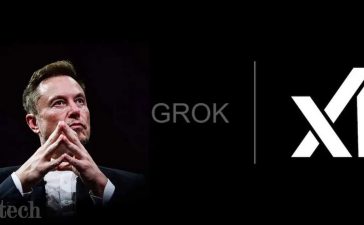
Even before President Donald J. Trump returned to office last month, net neutrality took a punch to the jaw. On Jan. 2, the US Court of Appeals for the Sixth Circuit struck down the Federal Communications Commission’s (FCC) net neutrality rules.
Oh well, it was nice while it lasted.
The latest set of rules, the FCC’s 2024 “Safeguarding and Securing the Open Internet Order,” would have established the three rules of net neutrality:
- No blocking: Broadband providers may not block access to legal content, applications, services, or non-harmful devices.
- No throttling: Broadband providers may not impair or degrade lawful Internet traffic on the basis of content, applications, services, or non-harmful devices.
- No paid prioritization: Broadband providers may not favor some lawful Internet traffic over other lawful traffic in exchange for consideration — in other words, no “fast lanes.” This rule also bans ISPs from prioritizing the content and services of their partners.
There’s nothing new about these rules. They’ve been the cornerstone of the internet you’ve known and used for decades. In 1992, the Commercial Internet Exchange (CIX) brought the first Internet Service Providers (ISPs) together to agree to let traffic run back and forth between them without restrictions. The rules they adopted would become what we call net neutrality.
It only makes sense, right? As Jessica Rosenworcel, former chairperson of the Federal Communications Commission (FCC) and a Democrat, said: “Consumers across the country have told us again and again that they want an internet that is fast, open, and fair.”
In a way, the court decision doesn’t matter. With Trump back in charge, there was no way net neutrality would survive.
After all, the Republicans argue, we can trust ISPs to do the right thing for their customers. As Brendan Carr, current FCC chairperson and a Republican, crowed: “[The January] decision is a good win for the country. Over the past four years, the Biden Administration has worked to expand the government’s control over every feature of the Internet ecosystem. You can see it in the Biden Administration’s efforts to pressure social media companies into censoring the free speech rights of everyday Americans.”
Funny that. Since Carr took over as chairperson, he’s launched investigations of American-led media companies and organizations such as NPR, PBS, Disney, CBS, NBC, and Comcast. Why? Because they’re not kowtowing to Trump and they’ve broadcast news that annoys him.
Nothing is surprising about this. Before Trump was elected again, he and his pack of billionaire buddies were already threatening to revoke network TV broadcast licenses because they didn’t like their news coverage. Carr, of course, is all in favor of this; as he said in a pre-election interview, “The law is very clear. The Communications Act says you have to operate in the public interest. And if you don’t, yes, one of the consequences is potentially losing your license.”
He then listed ABC, NBC, and CBS — but not Fox for some curious reason — as potentially running afoul of his take on the Communications Act of 1934, from which the FCC derives its authority.
As Nilay Patel, editor-in-chief of The Verge, recently wrote: “The FCC is pretty much the only government agency with some authority to directly regulate speech in America because it controls the spectrum used to broadcast radio and television. Carr has started using that authority to punish broadcasters for speech Trump doesn’t like or even for having internal business practices that don’t align with the administration.”
Aside from the national networks, there’s nothing saying Carr, directed by Trump’s sidekick Elon Musk, couldn’t restrict independent social networks such as Bluesky, Counter.social, and Mastodon while leaving X, Threads, and Truth.Social to do what they want.
This could be done, for example, by abusing Section 230 of the Communications Decency Act. In Project 2025‘s FCC section, which Carr authored, he stated: “FCC should work with Congress to ensure that anti-discrimination provisions are applied to Big Tech — including ‘back-end’ companies that provide hosting services and DDoS protection. Reforms that prohibit discrimination against core political viewpoints are one way to do this.”
Core political viewpoints, in this case, means, of course, pro-Trump speech. What this might look like is charging Universal Service Fund fees to non-Trump-friendly network owners.
Speaking of money and networks, Carr also happens to be a big satellite internet supporter. We all know, of course, that Musk’s Starlink is the only major satellite ISP.
What all this means for you is you can expect ISP fees to go ever higher and for there to be even less choice between ISPs in your neighborhood. Of course, that’s mostly the same old, same old, I’m sorry to say. The internet under Trump will come with more restrictions on news and, in all likelihood, even what you can say about the news.
Freedom of news and speech depends on a free Internet; under the current regime, we’re already losing it.












